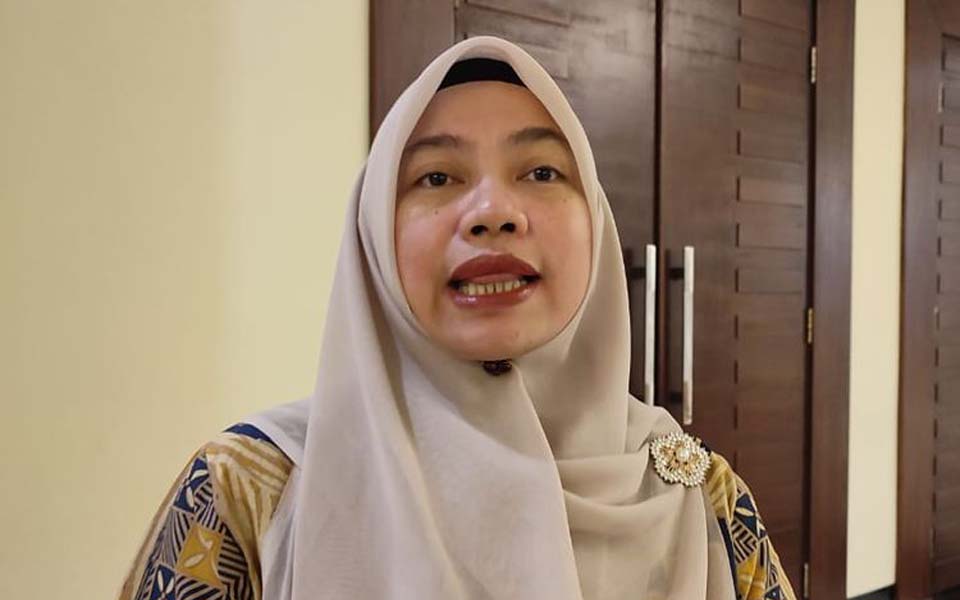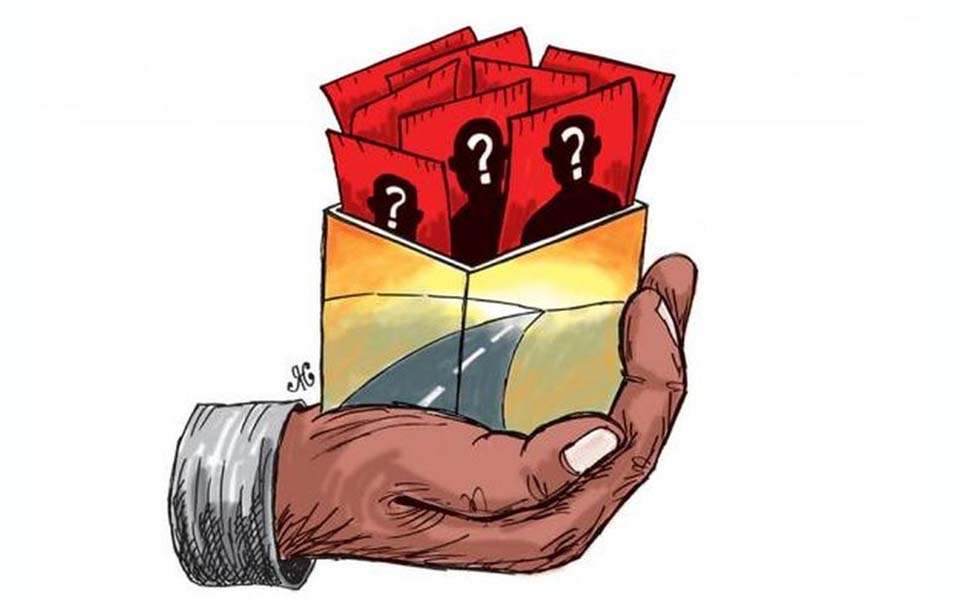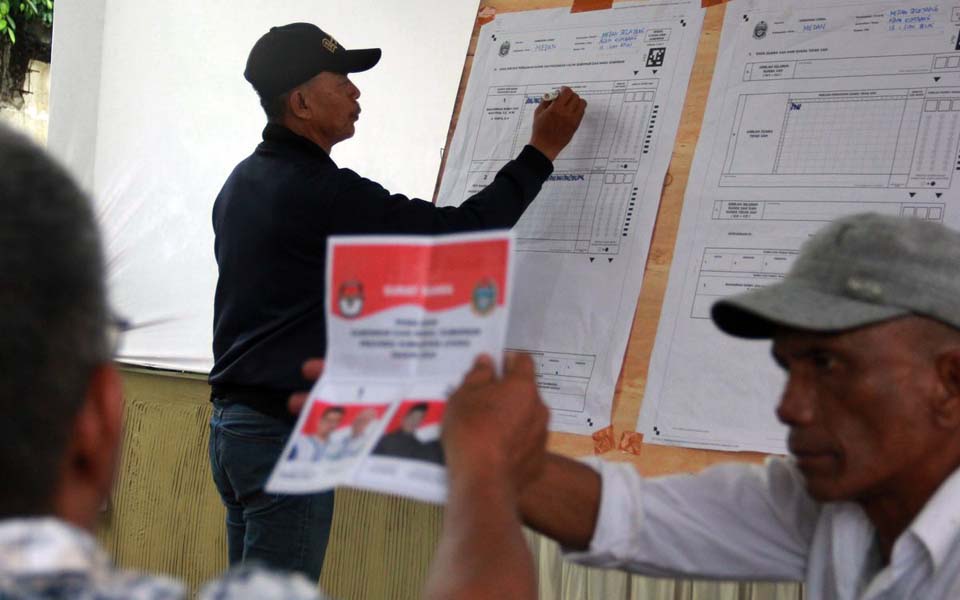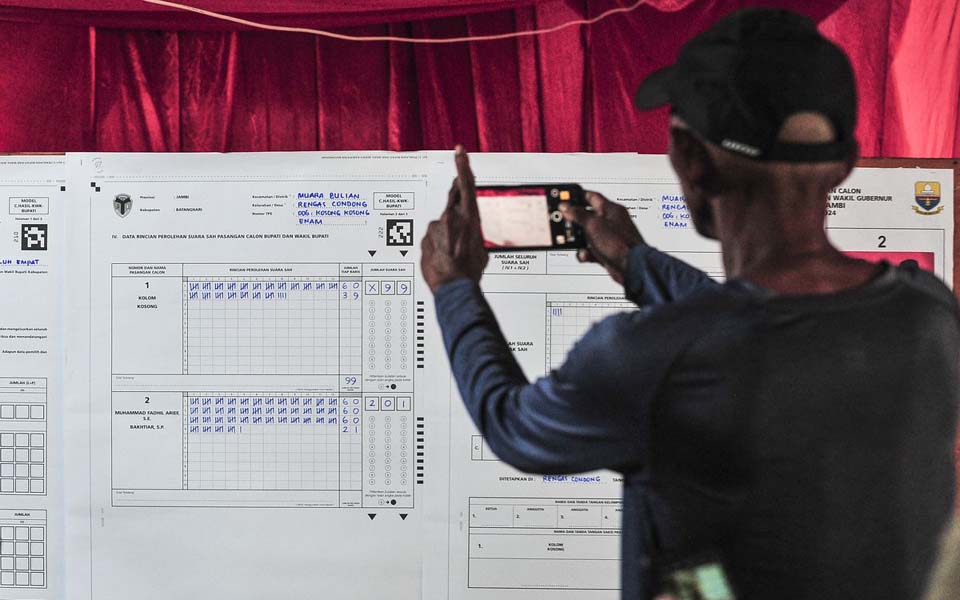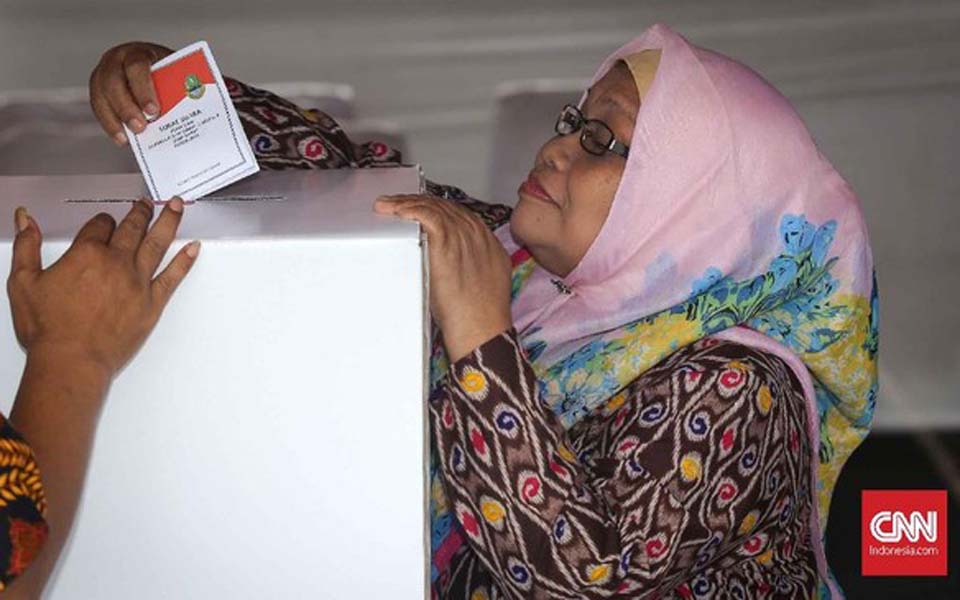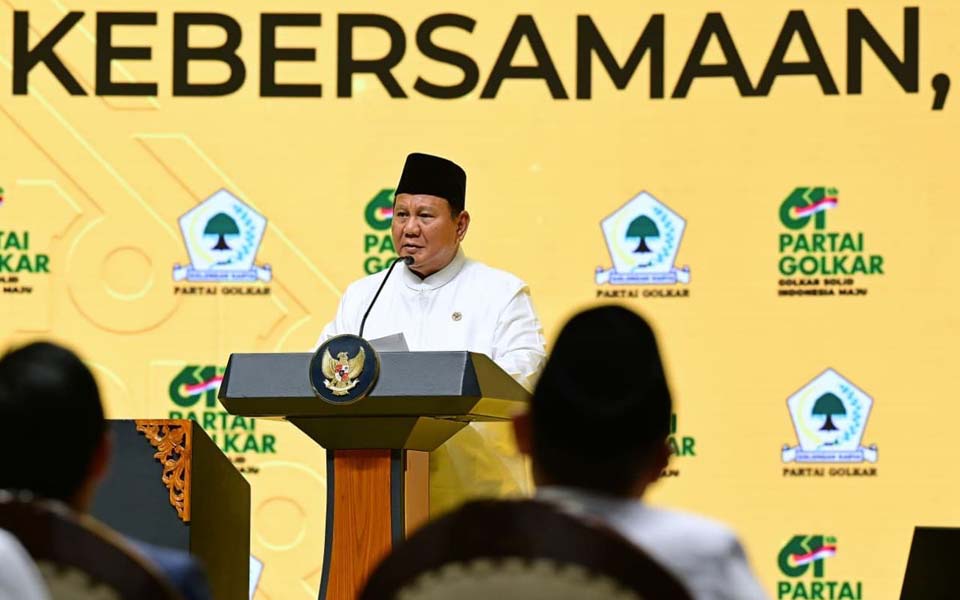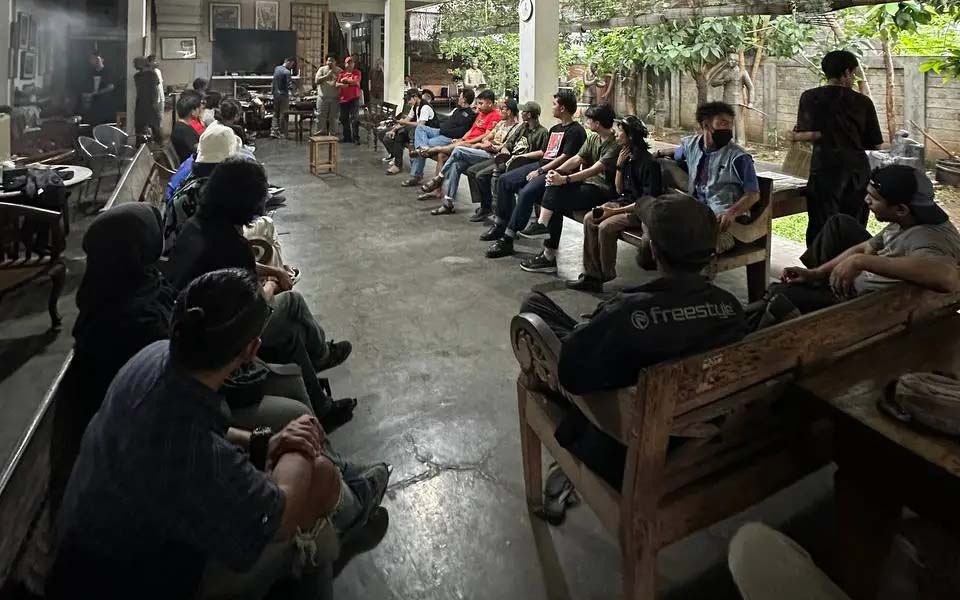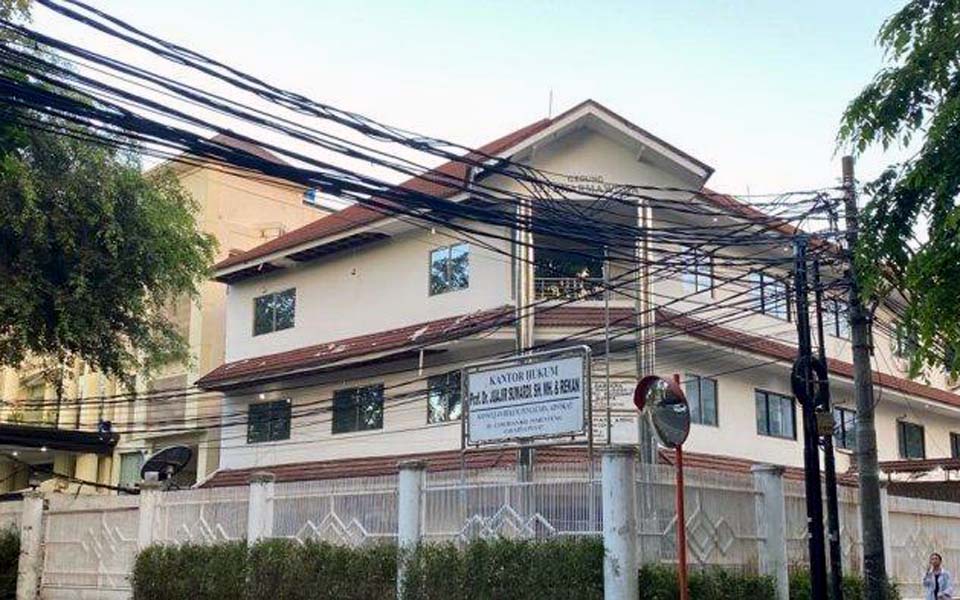Mulia Ramdhan Fauzani – The word golput or white group – to abstain from voting – has been heard more frequently in concert with the approach of the 2019 legislative and presidential elections. The general narrative that is most often heard is that golput is that it is irresponsible.
Politicians such as former Constitutional Court judge Mahfud MD have called on the public to avoid golput because the “festival of democracy is enjoyable”. Even entertainers such as Kaka Slank have made similar calls because, they say, “your vote makes a difference”.
Likewise with the two rival presidential camps: incumbent President Joko “Jokowi” Widodo and running mate Ma’ruf Amin’s National Campaign Team (TKN) and Prabowo Subianto and vice presidential candidate Sandiaga Uno’s National Victory Agency (BPN).
Widodo has even cited golput as a “factual threat” in Presidential Instruction Number 7/2018 on the 2018-19 National Defence Action Plan.
But some groups are going against the current. On Thursday February 21 at the Aspiration Park in Central Jakarta, right in front of the State Palace, a group of people held an event titled Free Speech Forum: I will Golput. They spoke about why they are taking such a position.
The 20 or so people at the forum claimed that they do not represent any particular group, including any non-government organisations.
Thirty-five-year-old Mirza was one of the participants who spoke at the free speech forum. She touched on the issue of the “lesser evil” – choosing the best of the worst – as the reason why many people in the end decided to vote for Widodo in the 2014 presidential election. For Mirza, this argument is now tired and worn out.
“Those who were afraid if Prabowo won [the presidential election] in 2014 are in fact seeing very clearly what is now happening [in the Widodo era]. There are more and more victims of the UU ITE [the defamation provisions of the Information and Electronic Transaction Law], there are agrarian conflicts, [infrastructure] development which sidelines the ordinary people, and the [revival] of ABRI’s dwi-fungsi [the Indonesian military’s dual socio-political role]”, said Mirza. Her voice was loud and shrill heard through the megaphone.
“Neither capres [presidential candidate], regardless of the comments made by their respective timses [election campaign teams], are worthy of being elected”, she said.
One of the initiators of the golput forum, 38-year-old Galesh, explained why in the end they have proclaimed a golput movement. According to Galesh, there is nothing wrong golput in legal and formal terms, and it is the most rational choice under a rotten political system to choose not to vote.
“[The right to] golput is guaranteed under the UUD [Constitution]. So we are free not to vote if we want to. This is a political choice”, said Galesh.
Galesh was referring to Article 28 (e) of the 1945 Constitution which reads, “Elections shall be held directly, openly, freely, confidentially, honestly and fairly every five years”. The word “free”, said Galesh, guarantees that citizens are free to vote or not to vote.
The election law also does not prohibit people from golput. What is prohibited, as cited under Article 515 of the law, is obstructing a person so that they lose their right to vote. For example, of a boss forces their employees to work on voting day so they are unable to go to the polling stations.
Solution?
This group is not just being critical. They are conscious for example that what they are doing today will not make Indonesia better straight away.
“Golput is indeed not a one-off solution to elections. Ces! Pleng! [an instant cure] Then all the problems are solved. No. It is a continuous and ongoing process”, added Galesh.
One of the things Galesh highlighted was the difficulty in establishing a political party so that the existing parties are filled with the propertied elite. “We all know, that the parties that exist at the moment are far from [representing] the interests of the majority of people”.
Galesh suggests therefore that establishing a political party be made easier. Currently, in order to establish a party you must have representatives (management boards) in 100 percent of the country’s provinces, 75 percent of regencies or cities, and 50 percent of sub-districts.
In order that public participation is better accommodated, she said, the government and the parliament must also provide space for local political parties which under the current electoral laws is only allowed under special autonomy in Indonesia’s northern-most province of Aceh. Local parties, said Galesh, would be far more able to “pick up on” the public’s wishes.
Galesh also highlighted the difficulties faced by independent candidates in regional elections. Under the current legal system, according to General Election Commission (KPU) Regulation Number 9/2015 on Nominations for the Election of Regional Heads, independent candidates must obtain a minimum number of signed petitions from residents at the village and sub-district levels depending on the size of the population.
“The material costs alone of these signed petitions runs into the billions [of rupiah]. Who can do this except those funded by the oligarchy and the political parties”, said Gales. The requirements for independent candidates, she said, should be made easier.
Following the free speech forum, the group will hold follow up events which will in essence be campaigning that the golput movement is a right and does not violate any regulations. “Later we want to put together frequently asked questions about golput which can be distributed”, concluded Gales.
A warning
The fact is that the rate of golput has been steadily rising since reformasi – the political reform process that began in 1998. According to Sri Yuniarti in an article published by the Indonesian Institute of Science’s (LIPI) Political Research Journal (Volume 6, Number 1, 2009), people golput because they are “disappointed with the existing political institutions, both the parliament as well as the political parties”.
LIPI institutional thought and politics expert Mochtar Pabottingi has a similar view: that golput is a critical movement. Nevertheless, he stops there and is unable to offer any concrete proposals for reform.
“[Golput] is limited to being a warning to state providers, that they should demonstrate good quality [governance], be sincere and honest”, said Pabottingi when speaking in Central Jakarta.
At most, golput can delegitimise the elected administration. And this is with the proviso that the movement is massive – something that is not happening at the movement.
In the end, Pabottingi believes that for the 2019 presidential election the concept of the lesser evil is the most sensible political choice.
Notes
Golput – Golongan Putih, White Group. The term first emerged as a campaign by students in the 1971 elections and derives its name from marking the white section of the ballot paper rather than a party symbol or candidate’s picture thereby making the vote invalid. In recent years the term has broadened to include not just intentionally casting an invalid vote but also vote abstention. Under new electoral laws introduced in 2003, golput, defacing a ballot paper or simply not voting is no longer an electoral offence. Although it is widely believed that publicly advocating golput is illegal, unless money or other enticements are offered simply campaigning for or encouraging others not to vote is not in fact a crime.
[Translated by James Balowski. The original title of the article was “Mengkritik Penguasa dengan Menyerukan Golput di Depan Istana”.]
Source: https://tirto.id/mengkritik-penguasa-dengan-menyerukan-golput-di-depan-istana-dhzT






